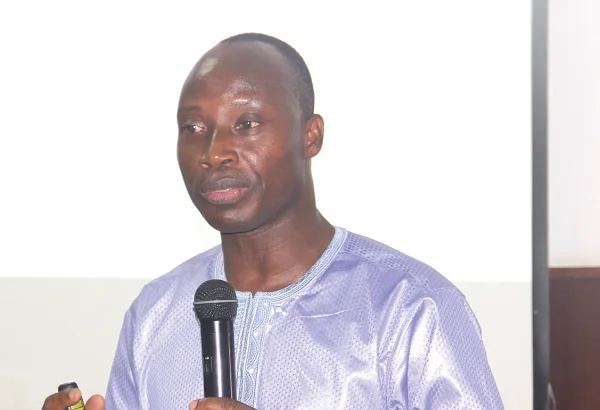Ghana’s economy recorded a 5.3 per cent growth in the first quarter of 2025, marking a notable improvement over the 4.9 per cent growth posted in the same period of 2024.
The expansion was largely fuelled by the services sector and a strong rebound in agriculture.
According to Government Statistician, Dr Alhassan Iddrisu, the agriculture sector saw a significant boost, growing by 6.6 per cent in Q1 2025—up from 2.4 per cent in Q1 2024. Fishing led the agricultural surge, recording a sharp increase of 16.4 per cent.
However, the industrial sector slowed to 3.4 per cent growth, compared to 6.7 per cent a year earlier. This was largely due to a steep 22.1 per cent decline in the oil and gas sector. Despite this, manufacturing held strong with a 6.6 per cent growth, signalling resilience in domestic production.
“The services sector grew by 5.9 per cent, with ICT leading the way at 13.1 per cent growth,” Dr Iddrisu revealed during a media briefing. He noted that services such as trade, transport, ICT, banking, and health now make up 46.8 per cent of Ghana’s economy.
“If we remove the oil & gas sector, the rest of the economy grew by 6.8 per cent, and this shows that Ghana’s economy is becoming more balanced, relying less on oil,” he added.
On a quarter-on-quarter basis, Ghana’s provisional real GDP, when seasonally adjusted, rose by 1.4 per cent in Q1 2025—up from 0.9 per cent in the last quarter of 2024.
The key drivers of this growth were crops, ICT, manufacturing, trade, transport, and finance—together accounting for 84.5 per cent of the 5.3 per cent growth.
Dr Iddrisu indicated that the government’s Agriculture for Transformation Programme, which includes subsidies and farmer training, is already strengthening food production. He added that households could benefit from this through improved food security and declining inflation.
He encouraged households to explore night-shift jobs emerging from the 24-Hour Economy initiative, particularly in ICT, trade, and transport, where sectors posted impressive growth rates of 13.1 per cent, 7.1 per cent, and 8.6 per cent respectively.
“Transport, ICT, and trade services are expanding,” he noted. “Businesses in logistics, delivery, customer service, and manufacturing should adjust working models to 24-hour cycles where feasible.”
He also urged small and medium enterprises (SMEs) to take advantage of infrastructure improvements, such as roads, irrigation, and storage facilities, under the African Continental Free Trade Area (AfCFTA) and the Big Push Programme, to source local inputs and access new markets.
While mining and quarrying grew modestly at 1.4 per cent, the steep decline in oil and gas prompted Dr Iddrisu to call for scaled-up activities under the Ghana Gold Board to stabilise revenue and expand impact beyond raw extraction.
He concluded by recommending that government accelerate its Big Push investments in power, roads, and digital infrastructure to support private sector-led growth and improve Ghana’s competitiveness in the regional market.
“Accelerating the Big Push investments in power, roads, and digital infrastructure could support private sector expansion and enhance regional competitiveness,” Dr Iddrisu said.


